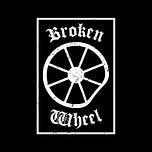- It is the same for all, since the same event happens to the righteous and the wicked, to the good and the evil, to the clean and the unclean, to him who sacrifices and him who does not sacrifice. As the good one is, so is the sinner, and he who swears is as he who shuns an oath. This is an evil in all that is done under the sun, that the same event happens to all. Also, the hearts of the children of man are full of evil, and madness is in their hearts while they live, and after that they go to the dead. -
Verse two adds to where we left off, focusing again on how events do not necessarily indicate God’s approval of our actions.
How can we know who are the good and the wicked? Solomon seems to indicate, similar to James, we can know this by their deeds.
He goes on to point out key laws from Jewish culture in which his contemporaries could see the good and evil path.
I always like to point out sacrificing when I see it mentioned in the Bible. First and foremost, because it is an archaic yet modern practice.
What do I mean? Sacrifice is the letting go of a portion of your work for a greater purpose. We don’t think about this, but raising livestock is a massive investment, especially in ancient cultures.
It takes time, food, and medical care (not to mention protection from wild beasts) to turn a young animal into a meal.
It’s not like going to Publix and picking your favorite cut. To take that long term investment and offer it up to God was no minor obligation.
Now, it doesn’t match perfectly, but our system of commerce rests on a similar philosophy.
We have all agreed that sacrificed time and labor is valuable and reward that activity with money. In short, money has value because of the time it took to obtain it.
Sure, it’s not exactly sacrifice, but the same concept supports both.
Now, just because we sacrifice, whether to God or man, does not mean that we will receive a great reward, as Solomon has made clear to us.
Although this point has been made throughout the book, there hasn’t been a reason given on why this is necessarily the case.
In verse three, Solomon provides a good one. No matter who you are, good, decent, or downright out-in-out sinful, the heart of man is full of evil.
The heart is desperately wicked, who can know it? Solomon agrees and goes so far as to call it madness.
What is he saying? That our hearts, including our children’s, are focused and desire evil. I believe that this comes from a fallen nature.
The dichotomy of whose image we were made from and the inherited nature from the fall leads to a madness, a state where we can trick ourselves that our actions are indeed good or justified.
We can believe it is right to mistreat others because of what they have done to us, or that it’s okay to steal based on what has been taken from us.
Here, we can see a new truth emerging: when you feel most righteous is when you should be most cautious.
Perhaps we can agree with some ancient wisdom and say that it is impossible to become strong unless one knows they are weak, to act wise unless one knows they are a fool.
How can one know righteousness if they do not know they are a sinner?














Share this post